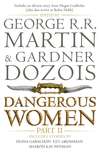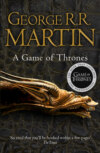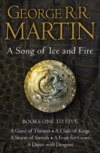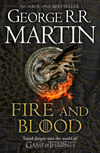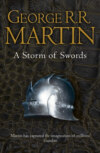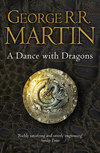Читать книгу: «Dangerous Women. Part II»


Copyright
HarperVoyager
An imprint of HarperCollinsPublishers Ltd
77–85 Fulham Palace Road
Hammersmith, London W6 8JB
First published in Great Britain by HarperVoyager 2013
Copyright © George R.R. Martin and Gardner Dozois 2013
Dangerous Women / Edited by George R.R. Martin and Gardner Dozois
Jacket layout design © HarperCollinsPublishers Ltd 2014
Jacket photograph © Royal Armouries
George R.R. Martin and Gardner Dozois asserts the moral right to be identified as the author of this work.
A catalogue copy of this book is available from the British Library.
This novel is entirely a work of fiction. The names, characters and incidents portrayed in it are the work of the author’s imagination. Any resemblance to actual persons, living or dead, events or localities is entirely coincidental.
All rights reserved under International and Pan-American Copyright Conventions. By payment of the required fees, you have been granted the non-exclusive, non-transferable right to access and read the text of this e-book on screen. No part of this text may be reproduced, transmitted, down-loaded, decompiled, reverse engineered, or stored in or introduced into any information storage and retrieval system, in any form or by any means, whether electronic or mechanical, now known or hereinafter invented, without the express written permission of HarperCollins.
Source ISBN: 9780007549436
Ebook Edition © October 2014 ISBN: 9780008104955
Version: 2014-08-26
Copyright Acknowledgments
“Neighbors” copyright © 2013 by Megan Lindholm
“The Girl in the Mirror” copyright © 2013 by Lev Grossman
“A Queen in Exile” copyright © 2013 by Sharon Kay Penman
“Pronouncing Doom” copyright © 2013 by S. M. Stirling
“Lies My Mother Told Me” copyright © 2013 by Caroline Spector
“Name the Beast” copyright © 2013 by Sam Sykes
“Virgins” copyright © 2013 by Diana Gabaldon
Dedication
To Jo Playford, my dangerous minion.
George R.R. Martin
Introduction by Gardner Dozois
Genre fiction has always been divided over the question of just how dangerous women are.
In the real world, of course, the question has long been settled. Even if the Amazons are mythological (and almost certainly wouldn’t have cut their right breasts off to make it easier to draw a bow if they weren’t), their legend was inspired by memory of the ferocious warrior women of the Scythians, who were very much not mythological. Gladiatrix, women gladiators, fought other women—and sometimes men—to the death in the arenas of Ancient Rome. There were female pirates like Anne Bonny and Mary Read, and even female samurai. Women served as frontline combat troops, feared for their ferocity, in the Russian army during World War II, and serve so in Israel today. Until 2013, women in the U.S. forces were technically restricted to “noncombat” roles, but many brave women gave their lives in Iraq and Afghanistan anyway, since bullets and land mines have never cared whether you’re a noncombatant or not. Women who served as Women Airforce Service Pilots for the United States during World War II were also limited to noncombat roles (where many of them were nevertheless killed in the performance of their duties), but Russian women took to the skies as fighter pilots, and sometimes became aces. A Russian female sniper during World War II was credited with more than fifty kills. Queen Boudicca of the Iceni tribe led one of the most fearsome revolts ever against Roman authority, one that was almost successful in driving the Roman invaders from Britain, and a young French peasant girl inspired and led the troops against the enemy so successfully that she became famous forever afterwards as Joan of Arc.
On the dark side, there have been female “highwaymen” like Mary Frith and Lady Katherine Ferrers and Pearl Hart (the last person to ever rob a stagecoach); notorious poisoners like Agrippina and Catherine de Medici, modern female outlaws like Ma Barker and Bonnie Parker, even female serial killers like Aileen Wuornos. Elizabeth Báthory was said to have bathed in the blood of virgins, and even though that has been called into question, there is no doubt that she tortured and killed dozens, perhaps hundreds, of children during her life. Queen Mary I of England had hundreds of Protestants burnt at the stake; Queen Elizabeth of England later responded by executing large numbers of Catholics. Mad Queen Ranavalona of Madagascar had so many people put to death that she wiped out one-third of the entire population of Madagascar during her reign; she would even have you executed if you appeared in her dreams.
Popular fiction, though, has always had a schizophrenic view of the dangerousness of women. In the science fiction of the 1930s, ’40s, and ’50s, women, if they appeared at all, were largely regulated to the role of the scientist’s beautiful daughter, who might scream during the fight scenes but otherwise had little to do except hang adoringly on the arm of the hero afterwards. Legions of women swooned helplessly while waiting to be rescued by the intrepid jut-jawed hero from everything from dragons to the bug-eyed monsters who were always carrying them off for improbable purposes either dietary or romantic on the covers of pulp SF magazines. Hopelessly struggling women were tied to railroad tracks, with nothing to do but squeak in protest and hope that the Good Guy arrived in time to save them.
And yet, at the same time, warrior women like Edgar Rice Burroughs’s Dejah Thoris and Thuvia, Maid of Mars, were every bit as good with the blade and every bit as deadly in battle as John Carter and their other male comrades, female adventuresses like C. L. Moore’s Jirel of Joiry swashbuckled their way through the pages of Weird Tales magazine (and blazed a trail for later female swashbucklers like Joanna Russ’s Alyx); James H. Schmitz sent Agents of Vega like Granny Wannatel and fearless teenagers like Telzey Amberdon and Trigger Argee out to battle the sinister menaces and monsters of the spaceways; and Robert A. Heinlein’s dangerous women were capable of being the captain of a spaceship or killing enemies in hand-to-hand combat. Arthur Conan Doyle’s sly, shady Irene Adler was one of the only people ever to outwit his Sherlock Holmes, and probably one of the inspirations for the legions of tricky, dangerous, seductive, and treacherous “femmes fatale” who featured in the works of Dashiell Hammett and James M. Cain and later went on to appear in dozens of films noir, and who still turn up in the movies and on television to this day. Later television heroines such as Buffy the Vampire Slayer and Xena, Warrior Princess, firmly established women as being formidable and deadly enough to battle hordes of fearsome supernatural menaces, and helped to inspire the whole subgenre of paranormal romance, which is sometimes unofficially known as the “kick-ass heroine” genre.
Like our anthology Warriors, Dangerous Women was conceived of as a cross-genre anthology, one that would mingle every kind of fiction, so we asked writers from every genre—science fiction, fantasy, mystery, historical, horror, paranormal romance, men and women alike—to tackle the theme of “dangerous women,” and that call was answered by some of the best writers in the business, including both new writers and giants of their fields like Diana Gabaldon, Jim Butcher, Sharon Kay Penman, Joe Abercrombie, Carrie Vaughn, Joe R. Lansdale, Lawrence Block, Cecelia Holland, Brandon Sanderson, Sherilynn Kenyon, S. M. Stirling, Nancy Kress, and George R. R. Martin.
Here you’ll find no hapless victims who stand by whimpering in dread while the male hero fights the monster or clashes swords with the villain, and if you want to tie these women to the railroad tracks, you’ll find you have a real fight on your hands. Instead, you will find sword-wielding women warriors; intrepid women fighter pilots and far-ranging spacewomen; deadly female serial killers; formidable female superheroes; sly and seductive femmes fatale; female wizards; hard-living bad girls; female bandits and rebels; embattled survivors in postapocalyptic futures; female private investigators; stern female hanging judges; haughty queens who rule nations and whose jealousies and ambitions send thousands to grisly deaths; daring dragonriders; and many more.
Enjoy!
Megan Lindholm
Books by Megan Lindholm include the fantasy novels Wizard of the Pigeons, Harpy’s Flight, The Windsingers, The Limbreth Gate, The Luck of the Wheels, The Reindeer People, Wolf’s Brother, and Cloven Hooves, the science fiction novel Alien Earth, and, with Steven Brust, the collaborative novel The Gypsy. Lindholm also writes as New York Times bestseller Robin Hobb, one of the most popular writers in fantasy today, having sold over one million copies of her work in paperback. As Robin Hobb, she’s perhaps best-known for her epic fantasy Farseer series, including Assassin’s Apprentice, Royal Assassin, and Assassin’s Quest, as well as the two fantasy series related to it, the Liveship Traders series, consisting of Ship of Magic, Mad Ship, and Ship of Destiny, and the Tawny Man series, made up of Fool’s Errand, Golden Fool, and Fool’s Fate. She’s also the author of the Soldier Son series, composed of Shaman’s Crossing, Forest Mage, and Renegade’s Magic. Most recently, as Robin Hobb, she’s started a new series, the Rain Wilds Chronicles, consisting of Dragon Keeper, Dragon Haven, City of Dragons, and Blood of Dragons. As Megan Lindholm, her most recent book is a “collaborative” collection with Robin Hobb, The Inheritance and Other Stories.
In the autumnal and beautifully crafted story that follows, she shows us that even the oldest of dogs, white of muzzle and slow of step, may have one last bite left in them.
NEIGHBORS
Linda Mason was loose again.
It was three in the morning, and sleep had fled. Sarah had wandered to the kitchen in her robe, put on the kettle, and rummaged the cupboards until she found a box of Celestial Seasonings Tension Tamer tea bags. She had set out a teacup on a saucer and put the tea bag in her “tea for one” teapot when she heard someone outside in the dark, shouting her name. “Sarah! Sarah Wilkins! You’d better hurry! It’s time to go!”
Her heart jumped high in her chest and hung there, pounding. Sarah didn’t recognize the shrill voice, but the triumphantly defiant tone was alarming. She didn’t want to look out the window. For a moment, she was eight years old again. Don’t look under the bed, don’t open the closet at night. As long as you don’t look, there might be nothing there. Schrödinger’s boogeyman. She reminded herself that she was much closer to sixty-eight than eight and drew back the curtain.
Low billows of fog cloaked the street, a precursor to fall in the Pacific Northwest. Her eyes adjusted and she saw crazy old Linda standing in the street outside the iron fence that surrounded Sarah’s backyard. She wore pink sweats and flappy bedroom slippers. She had an aluminum baseball bat in her hands and a Hello Kitty backpack on her shoulders. The latter two items, Sarah was fairly certain, actually belonged to Linda’s granddaughter. Linda’s son and his wife lived with the old woman. Sarah pitied the daughter-in-law, shoved into the role of caretaker for Robbie’s oddball mother. Alzheimer’s was what most people said about Linda, but “just plain nuts” seemed as apt.
Sarah had known Linda for twenty-two years. They had carpooled their sons to YMCA soccer games. They’d talked over coffee, exchanged homemade jam and too many zucchini, fed each other’s pets during vacation getaways, greeted each other in Safeway, and gossiped about the other neighbors. Not best friends, but neighborhood mom friends, in a fifties sort of way. Linda was one of the few older residents still in the neighborhood. The other parents she had known were long gone, had moved into condos or migrated as snowbirds or been packed off by their kids to senior homes. The houses would empty, and the next flock of young families would move in. Other than Linda, of her old friends, only Maureen and her husband, Hugh, still lived on the other end of the block, but they spent most days in Seattle for Hugh’s treatments.
“Sarah! You’d better hurry!” Linda shouted again. Two houses down, a bedroom light came on. The kettle began to whistle. Sarah snatched it off the burner, seized her coat off the hook, and opened the back door. The darn porch light didn’t work; the bulb had burned out last week, but it was too much trouble to get a step stool and a lightbulb and fix it. She edged down the steps carefully and headed to the fence, hoping that Sarge hadn’t done his business where she would step in it.
“Linda, are you all right? What’s going on?” She tried to speak to her as her old friend, but the truth was, Linda scared her now. Sometimes she was Linda, but abruptly she might say something wild and strange or mean. She did even stranger things. A few days ago, in the early morning, she had escaped into her front yard, picked all the ripe apples off her neighbor’s tree, and thrown them into the street. “Better than letting them fall and rot like last year!” she shouted when they caught her at it. “You’ll just waste them. Feed the future, I say! Give them to the ones who appreciate them!” When Robbie’s wife had seized her by the arm and tried to drag her back into their house, Linda had slapped her. Linda’s little granddaughter and her playmate had seen the whole thing. The child had started crying, but Sarah hadn’t know if it was from distress, fear, or simple humiliation, for half the neighborhood had turned out for the drama, including the neighbor who owned the apple tree. That woman was furious and telling anyone who would listen that it was time to “put that crazy old woman in a home.” She’d lived in the neighborhood a couple of years but Sarah didn’t even know her name.
“I am in my home!” Linda had shrieked back at her. “Why are you living in Marilyn’s home? What gives you more right to the apples off her tree than me? I helped her plant the damn thing!”
“Don’t you think we’d put her in a home if we could afford one? Do you think I like living like this?” Robbie’s wife had shouted at the neighbor. Then she had burst into tears and finally managed to tow Linda back inside.
And now Linda was out in the foggy night, staring at Sarah with round wild eyes. The wind was blowing through her white hair, and leaves rustled past her on the pavement. She wore a pink running suit and her bedroom slippers. She had something on her head, something fastened to a wool cap. She advanced on the fence and tapped the baseball bat on top of it, making it ring.
“Don’t dent my fence!” Sarah cried, and then, “Stay right there, Linda. Stay right there, I’m going to get help.”
“You need help, not me!” Linda shouted. She laughed wildly, and quoted, “‘Little child, come out to play, the moon doth shine as bright as day!’ Except it doesn’t! So that’s what I take with me. Moonlight!”
“Linda, it’s cold out here. Come inside and tell me there.” The phone. She should be calling 911 right now. Alex had told her to get a cell phone, but she just couldn’t budget one more payment a month. She couldn’t even afford to replace her old cordless phone with the faulty ringer. “We’ll have a cup of tea and talk. Just like old times when the kids were small.” She remembered it clearly, suddenly. She and Maureen and Linda sitting up together, waiting for the kids to come home from a football game. Talking and laughing. Then the kids grew up and they’d gone separate ways. They hadn’t had coffee together in years.
“No, Sarah. You come with me! Magic is better than crazy. And time is the only difference between magic and crazy. Stay in there, you’re crazy. Come with me, you’re magic. Watch!”
She did something, her hand fumbling at her breast. Then she lit up. “Solar power!” she shouted. “That’s my ticket to the future!” By the many tiny LEDs, Sarah recognized what Linda was wearing. She’d draped herself in strings of Christmas lights. The little solar panels that had charged them were fastened to her hat.
“Linda, come inside and show me. I’m freezing out here!” They were shouting. Why was the neighborhood staying dark? Someone should be getting annoyed by their loud conversation; someone’s dog should be barking.
“Time and tide wait for no man, Sarah! I’m off to seek my fortune. Last chance! Will you come with me?”
Inside the house, Sarah had to look up Linda’s number in the phone book, and when she called it, no one answered. After ten rings it went to recording. She hung up, took the phone to the window and dialed again. No Linda out there now. The windows in her house were dark. What to do now? Go bang on the door? Maybe Robbie had already come outside and found his mom and taken her in. Call the police? She went back into the yard, carrying the receiver in one hand. “Linda?” she called into the foggy darkness. “Linda, where are you?”
No one answered. The fog had thickened and the neighborhood was dark now. Even the streetlight on the corner, the hateful one that shone into her bedroom window, had chosen this moment to be dark. She dialed Linda’s number again, listened to it ring.
Back in the house, Sarah phoned her own son. She heard Alex’s sleepy “What?” on the seventh ring. She poured out her story. He wasn’t impressed. “Oh, Mom. It’s not our business. Go back to bed. I bet she went right back home and she’s probably asleep right now. Like I wish I was.”
“But what if she’s wandered off into the night? You know she’s not in her right mind.”
“She’s not the only one,” Alex muttered, and then said, “Look, Mom. It’s four in the morning. Go back to bed. I’ll drop by on my way to work, and we’ll knock on their door together. I’m sure she’s okay. Go back to bed.”
So she did. To toss and turn and worry.
She woke up at seven to his key in the lock. Good heavens! She’d made him detour from his Seattle commute to come by, and she wasn’t even up and ready to go knock on Linda’s door. “Be right down!” she shouted down the stairs, and began pulling on clothes. It took her longer than it should have, especially tying her shoes. “Floor just keeps getting farther away every day,” she muttered. It was her old joke with Russ. But Russ wasn’t around any longer to agree with her. Sarge was sleeping across her bedroom door. She nudged the beagle and he trailed after her.
She opened the kitchen door to a wave of heat. “What are you doing?” she demanded. Alex had the back door open and was fanning it back and forth. “What’s that smell?”
He glared at her. “The stove was on when I came in! You’re damn lucky you didn’t burn the house down. Why didn’t your smoke detector go off?”
“Batteries must be dead,” she lied. She had gotten tired of them going off for every bagel the old toaster scorched and had loosened the battery in the kitchen unit. “I must have left the burner on last night when Linda was outside. So it wasn’t on all night, only three or four hours.” The stove top still simmered with heat and the white ceramic around the abused burner was a creamy brown now. She started to touch it, and then drew her hand back. “A little scouring powder should clean that up. No harm done, thank goodness.”
“No harm done? Only three or four hours? Shit, Mom, do you not understand how lucky you were?” To her dismay, he unfolded her kitchen step stool and climbed up to the smoke detector. He tugged the cover open and the battery fell to the floor.
“Well! There’s the problem,” she observed. “It must have come loose in there.”
He eyed her. “Must have,” he said in a tight voice. Before she could stoop down, he hopped off the stool, scooped it up, and snapped it back into place. He closed the cover.
“Want some coffee?” she asked as she turned on the pot. She’d preset the coffeepot just as she had for the last twenty years so she wouldn’t have to fill it up every morning. Just push the button, and then sit at the table and read the paper in her pajamas until the first cup was ready when Russ would come down.
Or not, as was now the case.
“No. Thanks. I need to get on my way. Mom, you’ve got to be more careful.”
“I am careful. It wouldn’t have happened if the night hadn’t been so weird.”
“And you wouldn’t have forgotten your card in the ATM last week, except that the fire truck went by, so you didn’t hear the machine beeping at you as you walked away. But what about locking your keys in the car? And leaving the sprinkler running all night?”
“That was months ago!”
“That’s my point! This ‘forgetfulness’ started months ago! It’s only getting worse. And more expensive. We had that water bill. And the locksmith. Luckily, the ATM sucked your card back in and the bank called you. You didn’t even realize it was gone! And now we’re going to have a little spike in the power bill this month. You need to go to the doctor and get checked out. Maybe there’s a pill for it.”
“I’ll handle it,” she said. Now her voice was getting tight. She hated being lectured like this. “You’d better get on the road before the traffic builds up. You want some coffee in your commuter mug?”
He stared at her for a time, wanting to continue the argument, to reach some sort of imaginary resolution. Luckily, Alex didn’t have the time. “Yeah. I’ll get my mug. Looks like everything’s okay at the Masons’. There goes Robbie to work. I don’t think he’d be doing that if his mom were missing.”
There was nothing to reply that wouldn’t make her sound even more like a crackpot. When he came back in with his mug, she reached for the coffeepot and saw it was full of pale brown water. She’d forgotten to put the grounds in the filter. She didn’t miss a beat as she took out the instant coffee. “I’ve stopped making a full pot just for myself,” she said as she spooned powdered coffee into his commuter mug and poured the hot water over it. He took it with a sigh. Once he was gone, she fixed the coffee properly and sat down with her paper.
It was eleven o’clock before the police arrived, and one in the afternoon before an officer tapped on her door. She felt terrible as he carefully jotted down her account of what she had seen at 4 a.m. “And you didn’t call the police?” the young man asked her, his brown eyes full of sorrow for her stupidity.
“I called her house twice, and then called my son. But I didn’t see her outside, so I thought she’d gone home.”
He folded his notebook with a sigh and tucked it into his pocket. “Well. She didn’t,” he said heavily. “Poor old lady, out there in her slippers and Christmas lights. Well, I doubt she went far. We’ll find her.”
“She was wearing a hot-pink workout suit. And bedroom slippers.” She rummaged through her recall. “And she had a baseball bat. And a Hello Kitty backpack. Like she was going somewhere.”
He took out his notebook, sighed again, and added the details. “I wish you had called,” he said as he pocketed it again.
“So do I. But my son said she had probably gone home, and at my age it’s pretty easy to doubt your own judgment on things.”
“I imagine so. Good afternoon, ma’am.”
It was Thursday. She went to see Richard in the nursing home. She took, as she always did, one of the photo albums from when they were children. She parked in the parking lot, crossed the street to the coffee shop, and bought a large vanilla latte. She carried it into the permanent pee smell of Caring Manor, through the “parlor” with its floral sofa and dusty plastic flower arrangements, and went down the hall, past the inhabited wheelchairs parked along the walls. The hunched backs and wrinkly necks of the residents reminded her of turtles peering out of their shells. A few of the patients nodded at her as she passed, but most simply stared. Blue eyes faded to pale linen, brown eyes bleeding pigment into their whites, eyes with no one behind them anymore. There were familiar faces, residents who had been there at least as long as the three years that Richard had been here. She remembered their names, but they no longer did. They slumped in their chairs, waiting for nothing, their wheels a mockery to people who had no place to go.
There was a new nurse at the desk. Again. At first, Sarah had tried to greet every nurse and aide by name each time she visited Richard. It had proven a hopeless task. The nurses changed too often, and the lower echelon of aides who actually tended the residents changed even more frequently, as did the languages they spoke. Some of them were nice, chatting to Richard as they cleared away his lunch tray or changed his bedding. But others reminded her of prison guards, their eyes empty and resentful of their duties and the residents. She often brought them small gifts, jars of jam, squash from her garden, fresh tomatoes and peppers. She hoped those small bribes spoke even if they didn’t understand all her words as she thanked them for taking such good care of her brother. Sometimes, when she was wakeful in the night, she prayed that they would be patient and kind, or at least not vindictive. Be kind when wiping feces from his legs, be kind when holding him up for his shower. Be kind while doing a task you hate for a wage that doesn’t support you. Can anyone be that kind? she wondered.
Richard wasn’t there that Thursday. She sat with the man who lived in his body, showing him pictures of when they went camping, of their first days of school, and of their parents. He nodded and smiled and said they were lovely photos. That was the worst, that even in his confusion, his gentle courtesy remained. She stayed the one hour she always stayed with him, no matter how heart-wrenching it was. When no one was looking, she gave him sips of her coffee. Richard wasn’t allowed liquids anymore. Everything he ate was pureed and all his drinks, even his water, were thickened to a slime so that he wouldn’t aspirate them. That was one of the problems with Alzheimer’s. The swallowing muscles at the back of the throat weakened or people just forgot how to use them. So doctor’s orders for Richard were that he could no longer have coffee. She defied that. He’d lost his books and his pipe smoking and walking by himself. His coffee was his last small pleasure in life, and she clung to it on his behalf. Every week she brought him a cup and helped him surreptitiously to drink it while it was still hot. He loved it. The coffee always won her a smile from the creature who had been her big, strong brother.
Cup empty, she went home.
Linda’s disappearance was in the Tacoma News Tribune the next day. Sarah read the article. They had used an older photo, a calm and competent woman in a power suit. She wondered if it was because they had no snapshots of a wild-haired old woman. But then, no one had pictures of the grin she had worn when she’d turned her garden hose on the ten-year-old Thompson twins for squirting her cat with Super Soakers. It could not capture her smothered giggles when she had called Sarah at two in the morning and they’d both crept out to let the air out of all the tires of the cars parked outside Marty Sobin’s place when her teenager had the drunken party while Marty was out of town. “Now they can’t drive drunk,” Linda had whispered with satisfaction. Linda from the old days. Sarah remembered how she had stood in the street, flat-footed, her teeth gritted, and forced Marsha Bates to screech to a halt to avoid hitting her with her dad’s Jeep. “You’re driving too fast for this neighborhood. Next time I tell your parents and the cops.”
That Linda had hosted neighborhood Fourth of July barbecues and her house had been the one where the teenagers voluntarily gathered. Her Christmas lights were always first up and last down, and her Halloween jack-o’-lanterns were the largest on the street. That Linda had known how to start up a generator for the outdoor lights at the soccer picnic. After the big ice storm twelve years ago, she had taken her chain saw and cut up the tree that had fallen across the street when the city said no one could come for three days. Russ had opened the window and shouted, “Heads up, people! Crazy Norwegian lady with a chain saw!” and they had all laughed proudly. So proud that they could take care of themselves. But that Linda, and the cranky old woman she had become, were both gone now.
Her family put up posters. The police brought in a bloodhound. Robbie came by to visit and ask what she had seen that night. It was hard to meet his eyes and explain why she hadn’t called the police. “I called your house. Twice. I let the phone ring twenty times.”
“We turn the ringer off at night,” he said dully. He’d been a heavy boy when he played goalie for the soccer team, and now he was just plain fat. A fat, tired man with a problem parent who had turned into a missing parent. It had to be something of a relief, Sarah thought, and then bit her lip to keep from saying it aloud.
As the days went by, the nights got cooler and rainier. There were no reported sightings. She couldn’t have gotten far on foot. Could she? Had someone picked her up? What would someone want with a demented old woman with a baseball bat? Was she dead in the blackberries in some overgrown lot? Hitchhiking down Highway 99? Hungry and cold somewhere?
Now when Sarah awoke at two or three or four fifteen, guilt would keep her awake until true morning. It was horrid to be awake before the paper was delivered and before it was time to brew coffee. She sat at her table and stared at the harvest moon. “Boys and girls, come out to play,” she whispered to herself. Her strange hours bothered Sarge. The pudgy beagle would sit beside her chair and watch her with his mournful hound eyes. He missed Russ. He’d been Russ’s dog, and since Russ had died, his dog had become morose. She felt like he was just waiting to die now.
Well, wasn’t she, too?
No. Of course not! She had her life, her schedule. She had her morning paper and her garden to tend, and her grocery shopping and her TV shows at night. She had Alex and Sandy, even if Sandy lived on the other side of the mountains. She had her house, her yard, and her dog, and other important things.
Начислим
+35
Покупайте книги и получайте бонусы в Литрес, Читай-городе и Буквоеде.
Участвовать в бонусной программе
